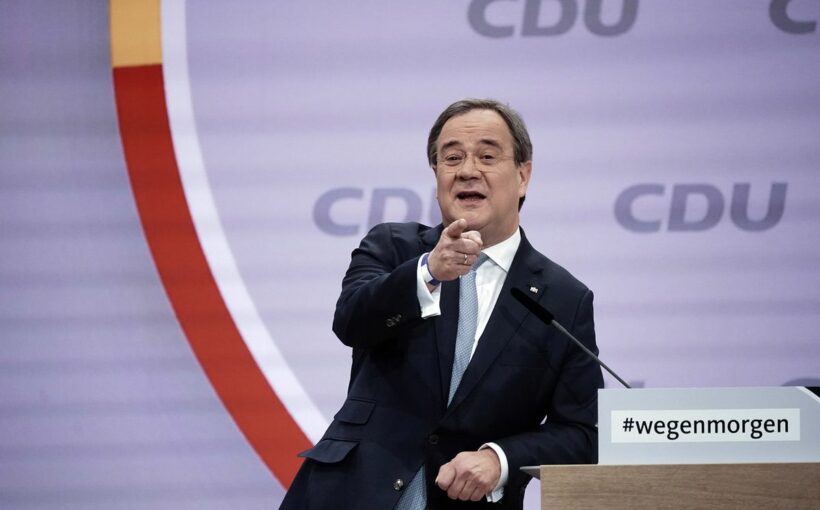In this article
Germany’s dominant party voted for continuity on Saturday by electing Armin Laschet as leader, opting for the candidate who most resembles outgoing chancellor, Angela Merkel, in policy and style.
Laschet, head of the country´s most populous state, beat long-time Merkel critic Friedrich Merz in a runoff after Norbert Roettgen, chairman of the foreign affairs committee in the Bundestag, was eliminated in the first round of voting at the Christian Democratic Union’s online convention.
“I’m aware of the responsibility that comes with this job and will do everything to do well in the upcoming regional elections and to ensure in the national election that the next chancellor comes from the Union,” he said.
With Merkel stepping down after elections in September, there’s intense focus on the succession in Berlin as Europe seeks to kickstart a pandemic-ravaged economy, reset transatlantic ties with the incoming U.S. administration and take a larger roll on the world stage.
Of the three candidates, Laschet has been Merkel’s biggest supporter and the most likely to maintain her centrist course, resisting challenges from the right-wing and from the Greens and with a firm commitment to the European Union.
“The Germany I imagine is a European Germany,” Laschet told delegates ahead of the vote. “We need to be able to integrate, to hold a society together.”
The son of a coal mining foreman, 59-year-old Laschet graduated in law, once edited a Catholic newspaper and was legislator in the Bundestag as well as the European Parliament before being elected premier of North Rhine-Westphalia in 2017.
His ties to the immigrant community during a previous stint in the regional government earned him the nickname “Turkish Armin” and his composed demeanor reminds many Germans of the outgoing chancellor.
“The CDU delegates have clearly voted for a continuation of Merkel´s line, staying in the political center,” said Carsten Brzeski, global head of macro research at ING. “Laschet has proven to be very pragmatic and stands for more fiscal stimulus and support for the green transition without losing the interests of business.”
While the party leader usually goes on to be the chancellor candidate for Germany’s conservative bloc, that step isn’t automatic this time. The Bavarian CSU sister party will have an important say in the decision, and Markus Soeder, the Christian Social Union’s leader, is currently well-ahead in the polls.
In a recent Infratest Dimap survey, 32% of CDU-CSU members polled thought Laschet would make a good chancellor candidate. That compares with 80% support for Soeder. Indeed, Laschet himself insisted the party should consider a candidate from the CSU when he spoke at the launch of Soeder’s biography in December.
Read More: Merkel Starting to See Former Troublemaker Could Be Chancellor
Laschet will have a brief window to prove himself during state elections in Baden-Wuerttemberg and Rhineland-Palatinate on March 14. If the CDU performs well there, it would enhance his chances of thwarting the Bavarian premier and claiming the candidacy.
At stake is not only how the CDU fares but also the kind of coalitions that will emerge from the next election. On the far-right, the Alternative for Germany is nipping at CDU support, while the Green party has jumped from sixth to second place in opinion polls since the last national vote in 2017 and is shaping up as a potential partner for the CDU/CSU.
After running neck and neck with the Greens earlier in the parliament, the conservatives have opened up a comfortable lead in the polls, thanks mainly to Merkel’s steady leadership during the pandemic. But lockdown fatigue and an uncertain economic outlook may nevertheless make the party vulnerable when they hit the campaign trail without Merkel for the first time in a generation.
While Laschet is said to be open to a Soeder candidacy and the two have a close professional relationship, some party members say he is too ambitious to simply hand over the chance to become the leader of Europe´s largest economy.
Source: Read Full Article
